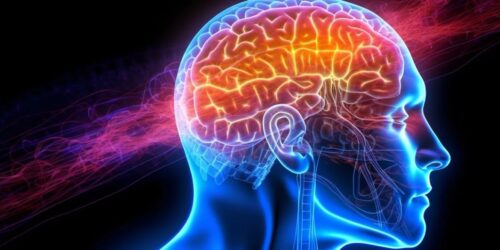Have you ever wondered what happens to your body as you drift into slumber? Sleep is a complex and essential process, and your body goes through several intriguing changes before you finally succumb to the land of dreams. In this blog post, we’ll explore the fascinating transformations that take place in your body as you prepare for a good night’s rest.
Temperature Regulation
As you start winding down for sleep, your body temperature begins to drop. This drop in temperature is a natural part of the circadian rhythm, your body’s internal clock. A cooler environment helps signal to your body that it’s time to sleep, promoting a more restful night.
Melatonin Release
The pineal gland in your brain starts to produce melatonin, often referred to as the “sleep hormone.” This hormone helps regulate your sleep-wake cycle and makes you feel drowsy, preparing you for a peaceful night’s sleep.
Muscle Relaxation
Your muscles gradually relax as you get ready for sleep. This is particularly noticeable in your face, jaw, and neck, which can explain why people might clench their jaw or grind their teeth during the day but not usually during sleep.
Heart Rate and Breathing
Your heart rate and breathing rate naturally slow down as you enter the early stages of sleep. This decrease in activity helps conserve energy and promotes a state of relaxation conducive to sleep.
Brain Activity
As you transition from wakefulness to sleep, your brain waves change. The rapid brain activity seen when you’re awake gradually gives way to slower, synchronized waves associated with the different sleep stages. This journey through various sleep stages is essential for restorative rest.
Eye Movements
During a typical night’s sleep, you’ll cycle through different sleep stages, including Rapid Eye Movement (REM) sleep. REM sleep is characterized by, as the name suggests, rapid eye movements beneath closed eyelids. It’s during this stage that vivid dreams often occur.
Digestive Process
Ideally, you should finish your last meal a few hours before bedtime to allow your digestive system to slow down. Eating too close to bedtime can disrupt sleep and even lead to discomfort due to indigestion.
Skin Rejuvenation
Sleep is essential for the body’s natural processes of repairing and rejuvenating skin cells. A good night’s sleep can contribute to a healthier complexion.
Growth Hormone Release
For children and teenagers, sleep is crucial for the release of growth hormone, which plays a vital role in physical development and growth.
Immune System Support
While you sleep, your immune system becomes more active, helping your body fight off infections and illnesses. Consistent, high-quality sleep is a cornerstone of a robust immune system.
In conclusion, the process of falling asleep involves a series of intricate changes in your body, all aimed at preparing you for a restorative night’s sleep. Understanding these transformations can help you appreciate the importance of healthy sleep patterns and encourage you to prioritize your sleep hygiene. So, the next time you crawl into bed and feel your body drifting away, know that it’s embarking on a fascinating journey of rejuvenation and restoration. Sweet dreams!

